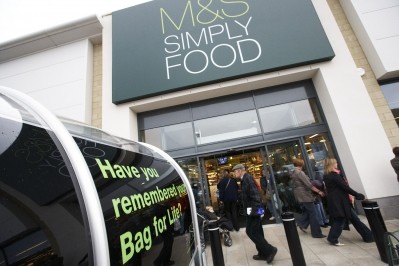Uniq "still viable" despite £436m pension deficit

The chilled food firm, which posted a £6m loss before tax in the six months to June 30, remains locked in discussions with the trustee of the scheme and the pensions regulator, said chief executive Geoff Eaton (pictured).
“If a long-term funding solution cannot be found, then the pension trustee has confirmed its intention to work with the company to seek alternatives including a possible re-capitalisation.”
He added: “The board has reviewed the position of the pension scheme and concluded that the interests of all stakeholders including the pension scheme are best served by the company continuing to trade and grow.”
Investec Securities said the fact that the trustee was exploring a recapitalisation “should offer strong reassurance that this issue is unlikely to result in the outcome seen with Readers Digest [where the pension trustee effectively liquidated the company].”
Uniq was also starting to deliver improved profitability and had a balance sheet with net cash of £18m following the receipt of the proceeds from the sale of its overseas operations, it added.
“There is therefore a viable business behind the pension headlines and hence we believe it is still plausible that a solution will be found to enable the group to continue to build its operations.”
Food-to-go
New business wins in sandwiches and salads helped Uniq post a 15.2% rise in sales in its food-to-go division to £77.2m in the first half, said Eaton: “The operating result for the division reflects this strong growth in sales with profit up £3.3m year-on-year at £5m.
“In the first half of 2010 we have invested in increasing mayonnaise production and storage capacity at Spalding to cope with increased salad volumes."
Desserts
Revenues in the desserts division, which was restructured in 2009 with the consolidation of three sites into two, were up just 0.6% to £79.1m, but there was stronger sales growth (4.6%) in the second quarter, he added.
“Not only have we launched more products but they have been extremely well received, in many cases the initial demand being more than double our expectation.”
However, continuing pressure on margins and additional costs to support the launch of new products drove the division into the red with a £1.8m operating loss.
Cottage cheese
Thanks to Arla's entry into the cottage cheese market via its new Stourton facility in Leeds, Uniq’s Evercreech factory would “experience a significant reduction of cottage cheese business in the second half”, he revealed."We just can't compete with them.
"Cottage cheese is a by-product of liquid milk production that we have been in for historical reasons, but we obviously don't process milk anymore, whereas Arla is developing a brand new facility that will do both."
Uniq would see a reduction in cottage cheese business from two major retail customers as a result of Arla's market entry, he said. “Management are carrying out a strategic review of the cottage cheese production facility with a view to the feasibility of down-sizing the operation. We expect to complete this review in the autumn.”
Wholesale cream costs up 80%
Input prices had “risen dramatically” during the first half, driven by 80% hikes in wholesale cream costs, he revealed. “Consequently we are well advanced in a process to agree price increases on the affected products with our customers.”
This could dent volumes, he accepted: “There is a risk that we may lose some volume as a result of our need to pass on these unavoidable input cost price increases.”
Outlook
Pension fund woes notwithstanding, Uniq was now in a much stronger position overall, he claimed: “In the first half of 2010 we completed the sale of our continental businesses and the transformation of Uniq into a UK focused chilled foods business. Our UK business is now profitable and showing strong sales growth.”















